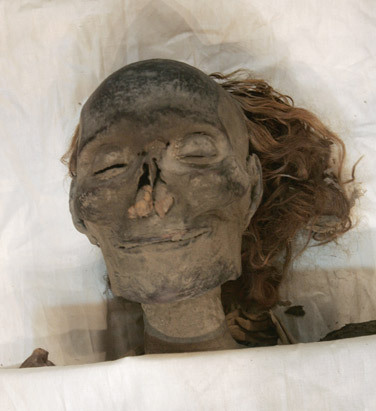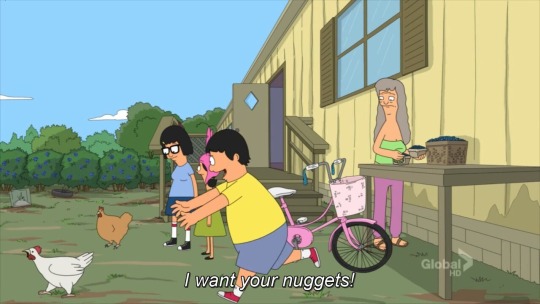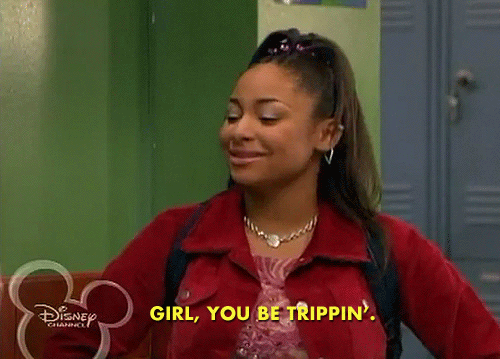Text
Blog Post 5
Watching, “Beloved” in class, we had a really good discussion about if people who don’t identify with a community are allowed to tell stories about that community. I had a hard time, and still have a hard time, answering this question because I believe every situation I is different. In the case of, “Beloved”, I was saying no. I think Jonathan Demme, a well meaning white man, was disconnected about recording and directing the violent scenes in the film. I thought the violence was too much and really just visually ingesting all of that seemed too much for me to reel back from. At one point I had turned away from scenes of violence or would watch and have that violence sort of violence wash over me. I do think that maybe Demme was trying to illustrate the sheer violence of that time, or maybe even thought he was staying true to Toni Morrison's words, but in those instances I am wondering, who is the film for? Essentially Black audiences are aware of the violence directed towards Black bodies and non-Black people of color and that ultimately racism kills, so besides those audiences, who is the film for? I doubt the great Ms. Morrison wrote, or actively writes, for white people or for white people to care about or to understand.
In class, I gave an example of director Barry Jenkins who tells the story of the unjust prison system in, “If Beale Street Could Talk”. Two characters in the film face violence behind bars and we don’t visually see the violence in the film but the men are visibly haunted as they recount what happens to them and we can see that testimony is enough. We can take them at their word. I think had a white director, or maybe even a non-Black person of color directed that film or maybe even had written the script, the film would turn out a different way. I think once someone from that community has a role in the creative process or an administrative role in the project, we can have well meaning, moving and profound art that consciously and beautifully tells the story of marginalized groups. I love everything and anything Toni Morrison, and I think she puts words to pain she has experienced and her people has experienced. I just think that people need to be sensitive in handling the stories and pain of other people.
3 notes
·
View notes
Text
Blog Post 4
I went to the premiere of, “Horror Noire: A History of Black Horror”, and watching that documentary was so inspiring as it was affirming. The documentary was entertaining and educational. I think the documentary was really great in examining Black characters in horror films, whether they were monsters or the sidekick friend, or one liner character. Also hearing the tropes that Black people play in horror films such as the magical negro or the sacrificial negro was disgusting because I sat there thinking, “How did this go on for so long?” or “Who let this happen?”
The film was really great in tying back the themes of how Black people were seen on screen sort of became the only way people saw them. Or how Black people were mischaracterized in films affirmed the scary trope for many white people which really concluded in real life reationaliton and violence as the rise of Jim Crow laws and the presence of the Klan made life difficult for Black Americans.
I think the film including a Black woman at the forefront really included conversations Black men could maybe hint at but cannot fully articulate. In one instance, many of the Black female scholars talked about Black women in film, and how often they are oversexualized or extremely desexualized. I think men in general would not be able to identify with not having ownership of the narrative surrounding your own body.
In some parts the film was inspiring as there were instances discussed of Black people going out to making their own films or reclaiming their own stories and characters in the horror sphere. I think that’s why the success of Jordan Peele is amazing and inspiring to witness because we hear about so many people who have tried and maybe were deterred or unable to see their dreams come to fruition as they tried to go in that creative lane.
I really liked how though the documentary praised the originality of the films like, “Blacula” and “Candyman” the films were still criticized as they ultimately fed into the white narrative of Black people in horror, stereotyping Black people and Black culture.
The film really left me thinking why Black people were not able to exist in a horror genre as the consumed and contribute to the genre but also lived and combated against the daily horror of racism.
0 notes
Text
Blog Post 6
Ending the class with, “The First Purge” was so full circle. The film tackled so many themes we discussed such as state sanctioned violence, experiments done on poor Black and brown people, and racial violence enacted at the hands of white supremacists and the institution of white supremacy. The film was released this summer but it touched issues on we have seen in films dated back to the early 1900’s.
An aspect we had discussed in class was the overuse of violence in the film. I did not feel joy at the end only because of all the death I was exposed to just a bit earlier. I think the film was also probably done with the least care of all in “The Purge” franchise. Something about it was seemed a bit rough but also tense. I think the film honest depiction about a community suffering and and political diplomats not caring about the people they are sworn to serve in a term of capitalistic gain as well as making sure the racial structure does not, and is not disrupted. A redeeming point for me was the drug dealers and local gangbangers fighting against this infiltration. I think that is kind of reminiscent of the Black Panther Party fighting for their people in a way most people don't commend but I think was really brave.
Being in this class as a creative and as a Black girl who genuinely just loves film, was extremely emotional and affirming. So many times throughout the class I felt validated. My existence, my thoughts and opinion, and existence in a way was validated. Only one professor besides Professor Due, was Black and I don’t think many people how representation matters in spaces of academia. I think being in a space of my other Black peers, other Black students I don’t get to see in my other classes, on campus for sure, but just seeing a group of Black students made me hyper aware of my existence as a Black student at a Predominately White Intuition (PWI). It also made me really believe in the strength of community and in numbers, like we are here. I have people around me who go through the same things with me but also find joy and relationality in the same things. I felt robbed of my Black identity at one point, or I felt really invisible no experience but just being in this space, existing in this space, I felt more strong and more present if that makes sense.
0 notes
Text
Blog Post 2
‘“Get Out” is a documentary” director, actor, and writer, Jordan Peele tweeted in response to his horror film about interracial relationships and racial hierarchy in response to it being nominated for best film in a musical or comedy for the 75th Annual Golden Globes.
“Get Out” is a film tells the story of Chris as he meets his girlfriend Rose’s parents. Chris is Black and Rose is white, and although what most people try to . A blend of “Guess Who's Coming to Dinner” and other horror films, “Get Out” transcends expectations and first thoughts. Throughout the film we see themes of complicity, racist science, and liberal racism. The white women in the film stood out to me as symbolism of white women upholding the structure of white supremacy even though they suffer from misogyny. The whole experience Rose’s parents, the Armitages, preform is racist science, That Black bodies are somehow out of the ordinary and are in some ways, superhuman, performing at an unusual rate in athletic skills.
One thing I can that I learned in class that I had not heard of in public forums and discussions about the film is that community is so important. Chris’ best friend, Rod, is Chris’ therapist as he explains the weird happenings during his stay at Rose’s house. In the end, Rod is the one who saves Chris as Rod believes that something weird is going on. At the auction scene, Chris feels a sense of relief as he sees another Black man, Andre, who has already gone the procedure that uses Black bodies to host white minds so they can live forever. Andre does not respond the way Chris expects him to which makes Chris really skeptical of the only other Black person he has seen over the weekend. Even though there are Black people in the film, Georgina and Walter, the house workers at the house and Chris already feels a sense of disconnect with them as they remind him of a time not too long ago of Black people under white servitude.
What Jordan Peele did is practically unheard of, and no doubt people will try to emulate his originality. What “Get Out” does is speak about race issues in a country that really had built a system of whiteness before this country was officially declare as a country. This film is literally the definition of, “Everybody wanna be Black but don’t nobody wanna BE Black”.
1 note
·
View note
Text
Blog Post 1
I am very interested to know what the class entails. What became clear to me is defining, or redefining what horror is or means to some people. In the case of Black horror in a class that sees horror as evil spirits but also evil mistreatment is sort of, “Of course!” moment. Being in an African American class about film as a person who aspires to work in film one day, is really a process of me learning and unlearning storylines and stereotypical tropes through the gaze of white supremacy. I think this class is being a space of healing as well as a space of learning. I am putting words to emotions I could not understand. Being in this space where I can speak freely can help me formulate my ideas and words so that those that are not Black can understand my point of view. Not being gaslighted makes me want to contribute to the class discussion so I think that makes me want to look forward to coming to class.
Understanding the racial trauma against Black and brown bodies is a horror reality for people of that community and racism is the monster, as seen in other films we will watch such as, “Get Out”. Activist, lawyer and founder of the Equal Justice Initiative, Bryan Stevenson once said that Black people fleeing the south during the Great Migration is an example of refugees fleeing terror, and in this case racial terror. Starting the class with viewing and discussing the social and media impact of “The Birth of a Nation” really aligned with that sentiment and statement for me.
The movies we have seen such as “Wake” and “The Birth of a Nation” are a great indicator of what the class is about and how the horror in film can be translated across though magic or racial violence.
Watching, “Son Of Ingagi”, in a horror class was a bit weird because the movie was not scary to me at all, due to the low production budget and stiff acting. However, with a better budget the film could have been more scarier as the story really had a good premise. Also the fact the film was an all Black cast was very revolutionary as it showed Black people more than just slaves or mammies. I think this film, in the end, did more progress than damage. I am upset I didn't know about this film before the class because of just how groundbreaking it was.
0 notes
Photo






Pakistan In Solidarity with Ferguson
Because international solidarity is important. Because we understand solidarity does not only constitute holding up a sign. Because we have to work towards fighting anti-blackness in our own Pakistani communities. Because we are in this struggle together. Because both brown and black bodies are done violence to by white men in uniforms, different as those uniforms may be. Because we have seen black communities protest against drone strikes for our right to life. Because you too, have that right to life. Because we want you to know you are heard. Because we want you to know you are not alone in this struggle. Because we want you to know we are with you.
Because we want you to know that you have all our love and support until all our peoples are liberated and free to live in peace.
If you are Pakistani and would like to contribute to this campaign, please send your picture to this page or upload your picture on any platform using the hashtag #Pakistan2Ferguson.
Intisaab | Democratic Students’ Alliance
28K notes
·
View notes
Photo

Queen Hatshepsut of Ancient Egypt. She has a lovely smile for someone who’s been dead for thousands of years.
657K notes
·
View notes
Photo

Boss man #KanyeWest x @TEYANATAYLOR last night!
522 notes
·
View notes
Photo

"What’s your favorite thing about your mom?" "She’s nice." "What’s an example of a time when she was nice?" "One time when I was little, she got me a red power ranger that I really wanted even though she didn’t have enough money, and that made me feel really good."
5K notes
·
View notes
Text
America is a joke and no one is laughing anymore.
43K notes
·
View notes
Quote
Sin, young man, is when you treat people like things.
Granny Weatherwax, from Terry Pratchett’s Carpe Jugulum (via coleslawdraws)
555 notes
·
View notes
Text
do u have that one person who you kinda just
im so happy youre alive i dont care that youre miles and miles away i just love you a lot and care for you so much
437K notes
·
View notes





